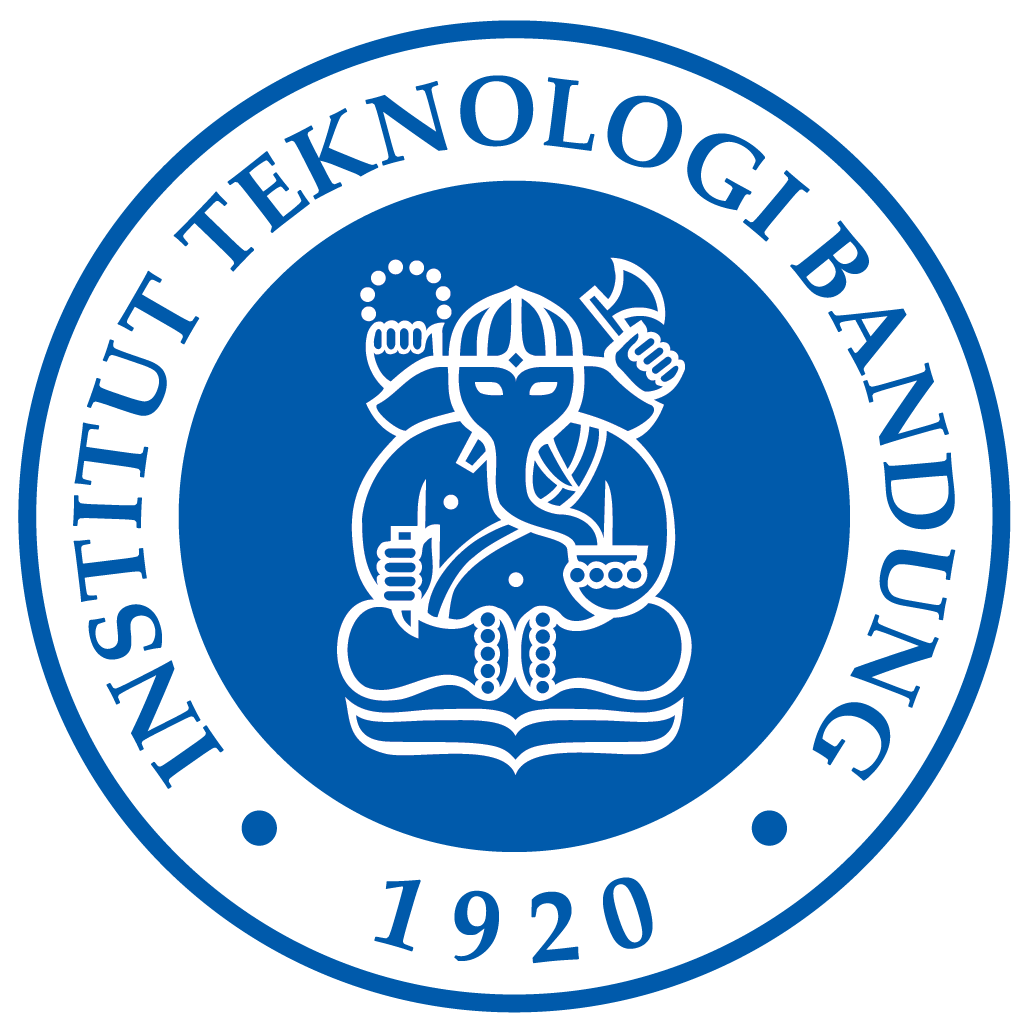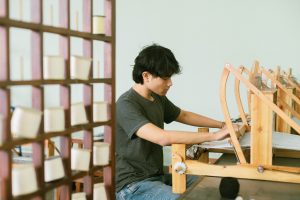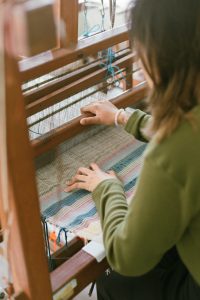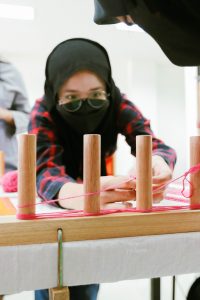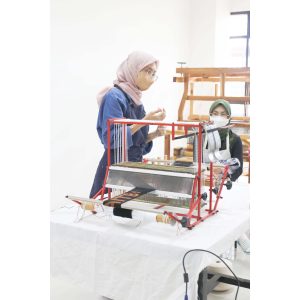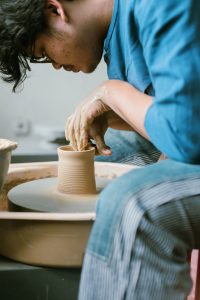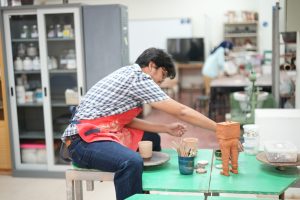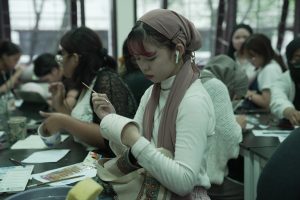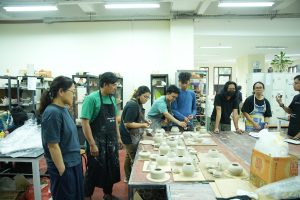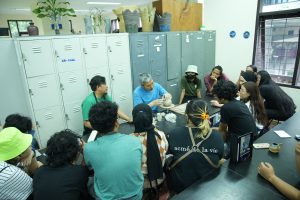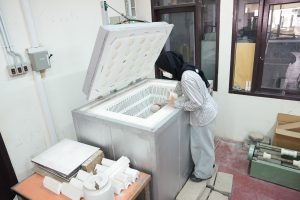Chair of Undergraduate Program in Craft
Dr. Yan Yan Sunarya, S.Sn., M.Sn.
Undergraduate Program in Craft is one of the oldest study programs in Indonesia focusing on the efforts to utilize a variety of craft in Indonesia. Since 1975, Undergraduate Program in Craft has made a significant contribution to the development of creative industries in Indonesia and abroad. Craft includes knowledge and expertise that is based on skill, dexterity and mastery of the medium, which is now multi-interdisciplinary and contextual. The close connection between craft and history, the environment, and the traditions of the people who create it shows a dialectical understanding of modernity in the constellation of the progress of the spirit of the times.

Pathways
Undergraduate Program in Craft offers two pathways:
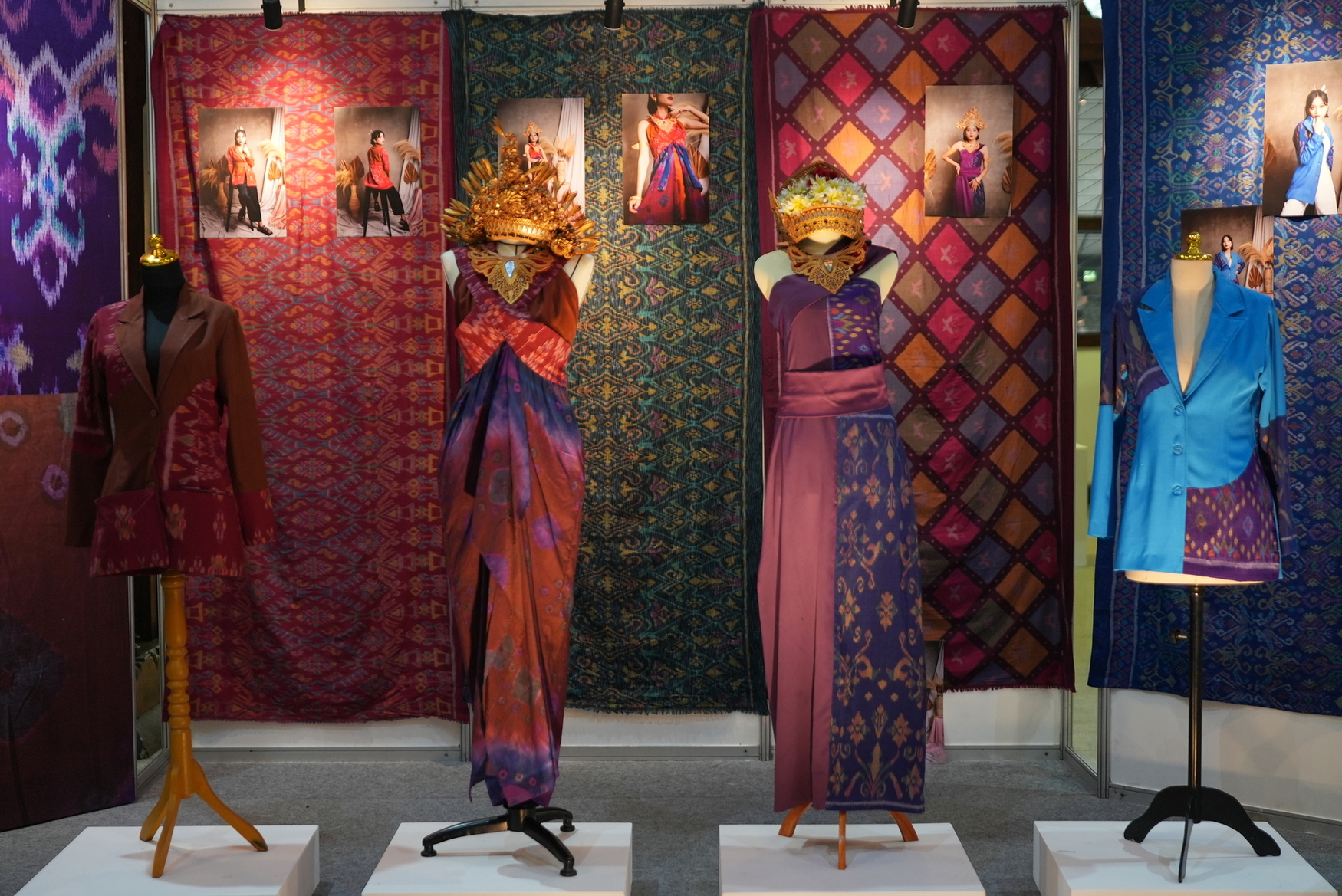
Textile Craft
This pathway focuses on the creation of textile product for fashion, interiors, accessories, and so on. Students will learn various concepts, motifs, raft designs, background designs, materials and dyes, fibres, threads, fabrics, smartextile, and other.
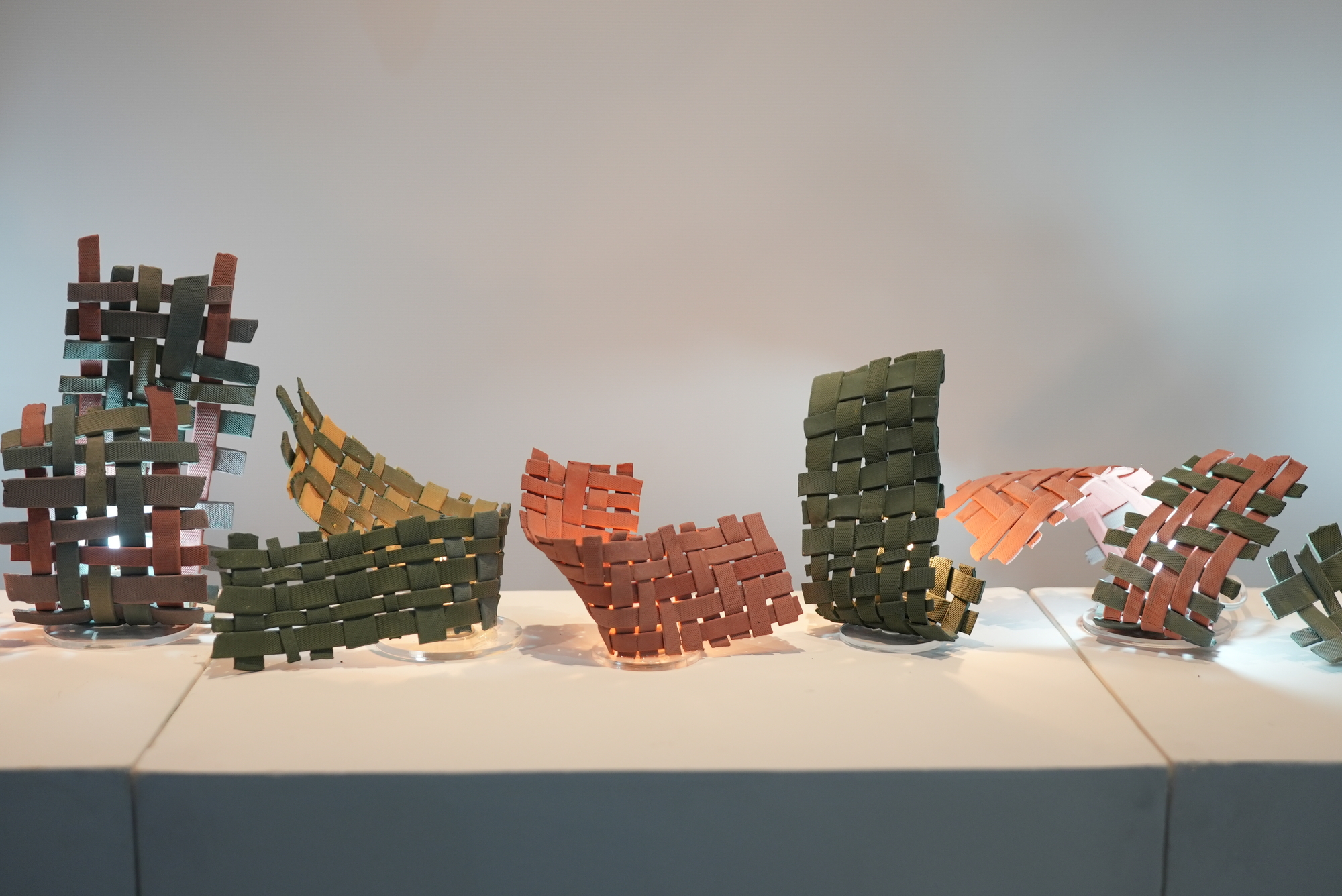
Ceramic Craft
This pathway focuses on making ceramic craft innovations based on techniques and processes for making ceramics, ceramic materials and decorations, as well as combinations of other materials in ceramic craft.
Curriculum
Overview
All students will undergo education in the Common Preparatory Program (TPB). Students will be introduced to various basic subjects. During this period students are listed as faculty/school students. At the end of the first year, students will choose a study program based on their interests and academic achievements.
Students have entered the selected study program. In the second year, all students will conduct academic exploration through the subjects offered by the study program.
Students will begin to do conceptualization and specialization in science.
Students start doing a final project as one of the requirements for obtaining a bachelor's degree.
Course Semester
| Course | Credit |
|
|
|
|
|
|
|
|
|
|
|
|
|
|
| Course | Credit |
|
|
|
|
|
|
|
|
|
|
|
|
| Course | Credit |
|
|
|
|
|
|
|
|
|
|
|
|
|
|
| Course | Credit |
|
|
|
|
|
|
|
|
|
|
| Course | Credit |
|
|
|
|
| Compulsory Course for Major in Textile Craft | |
|
|
|
|
|
|
|
|
| Compulsory Course for Major in Ceramic Craft | |
|
|
|
|
|
|
|
|
| Course | Credit |
|
|
|
|
| Compulsory Course for Major in Textile Craft | |
|
|
|
|
|
|
| Compulsory Course for Major in Ceramic Craft | |
|
|
|
|
|
|
| Course | Credit |
|
|
|
|
|
|
|
|
| Compulsory Course for Major in Textile Craft | |
|
|
| Compulsory Course for Major in Ceramic Craft | |
|
|
| Course | Credit |
|
|
|
|
CAREER
Students of the Undergraduate Program in Craft have the opportunity to work in various fields such as
- Designers
- Artist
- Stylist
- Entrepreneurs
- Designer Consultant
- Fabric designer
- Fashion Editor & Wardrobe
- Fashion Designer
- Craft Academic Researcher.
- Etc.
Competence of graduates
Undergraduate Program in Craft gives birth to medium-empowered creative craftsmen towards wearables who see the world of craft as a dynamic-progressive science and skill. That is, apart from being awareness to traditional and modern craft activities–where artifact, ethnographic and traditional art forms the basis–it is also exploratory, adaptive, even inventive towards existing problems and needs. Including his fluency in reading the medium as a dynamic of science and technology both in the field of expertise/scientific textiles and ceramics which has an impact on the creation of networks and potential stakeholders.

